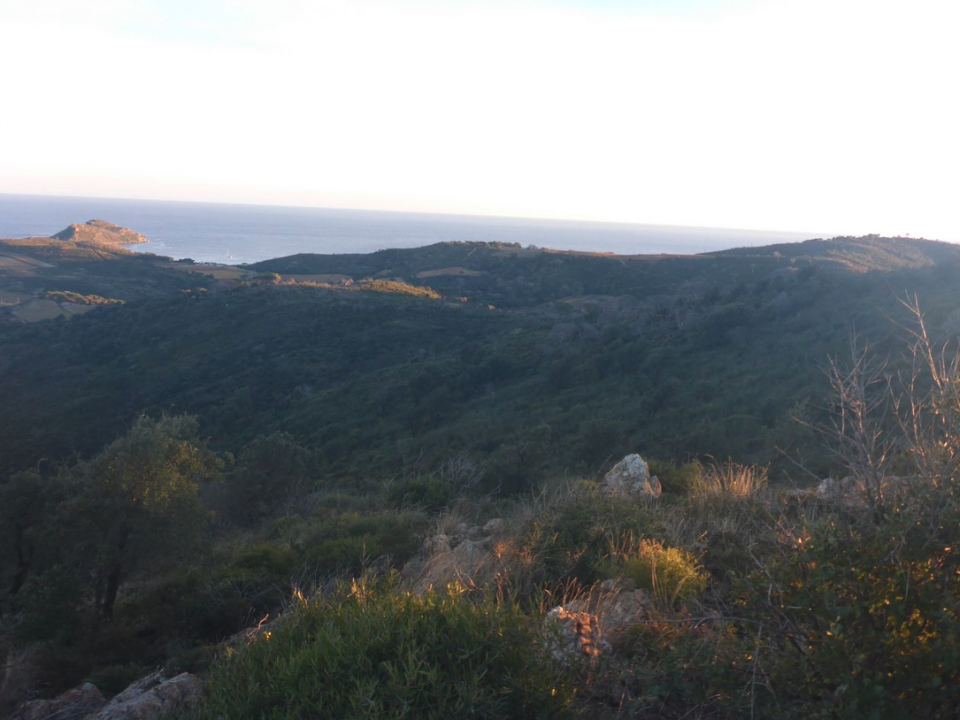
The Cap Lardier site suffered a major wildfire from 24 to 27 July 2017, over more than 500 ha, causing the loss of an extensive Mediterranean forest heritage. Wildfires are a major threat not only to the local population, but also to local biodiversity. In this region of the Mediterranean coastline, climate change is already causing severe stress to Mediterranean vegetation and forest ecosystems, particularly due to increased periods of drought and summer heatwaves. These changes are potentially the cause of the dieback observed in certain deciduous trees, particularly oaks, and are likely to increase the frequency and severity of wildfires in the area.
• For adaptation to climate changes : understand and promote the resilience of natural habitats to
fire risk, in the context of climate change and share knowledge and involve people in fire risk awareness.
• For biodiversity : Support the regeneration of degraded natural areas
Actions to prevent the risk of fire have been implemented on the site of Cap Lardier to increase resistance to fire, while encouraging the regeneration of diverse post-fire populations, in particular :
• supporting the natural dynamics of the native species best adapted to the passage of fire (Holm Oak, Cork Oak and other deciduous trees of the maquis) over almost 300 ha, with monitoring of this recovery;
• the development of experimental plots in a 4-hectare area of windfall and completely burnt pinewood to support the transition to oak woodland (more resistant to fire), while reducing the encroachment of pioneer species (mainly conifers, in particular Aleppo Pine and Maritime Pine) and invasive pyrophyte alien species such as mimosa, prickly pear and Japanese honeysuckle, by
mechanical clearing or sylvopasture grazing by donkeys, aadapting the grazing pressure according to the target species.
BENEFITS REGARDING TARGETED ADAPTATION ISSUES
Fires : reduction in the intensity and scale of fires.
BENEFITS FOR BIODIVERSITY
Recolonisation by plant species was observed nine months after the fire. These measures enabled a number of additional plant species (Geranium columbinum, Ranunculus bulbosus, Plantago coronopus, Pinus pinea and Pinus pinaster) to become established. The opening up of the environment is favourable to certain animal species, in particular Hermann’s Tortoise and the Ocellated Lizard.
OTHER BENEFITS
Soil erosion : limiting the risk of soil erosion from autumn rainfall in 28 ha of high-risk areas (exposed soils and steep slopes) by laying coconut fibre netting on the ground and creating networks of fascines (using burnt wood from raw materials available on the site) to trap fine sediments and seeds and encourage the recolonisation of plant species.
- Developing climate change adaptation; improving risk management and resilience
- Restoring ecosystems and their functions
- Increase Biodiversity
Levers for success
• Scientific and technical expertise : the project
brings together a wide range of stakeholders
(university, laboratory and research institute)
and many disciplines (herpetology, entomology,
botany, forestry, etc.).
• Citizen involvement : the participation of local
residents in the restoration work, either through
financial donations or by taking part in the work
on a voluntary basis, has been a driving force
behind the project’s success.
• The methodology used in this project could
be considered for other sites that have been
damaged by wildfires.
• Technical workshops for French and European
Union natural area managers are planned, as well
as the publication of decision-support fact files
based on the experiments carried out on the
various pilot sites.
• TotalEnergies Foundation (52%)
• Interreg Maritime (28%)
• Conservatoire du littoral - coastal protection agency (10%)
• Port-Cros National Park (7%)
• PACA region (3%),
Total budget : 577,150€
Serantoni Eric
Port-Cros National Park, Port Cros, 83400 Hyères
eric.serantoni@portcros-parcnational.fr

